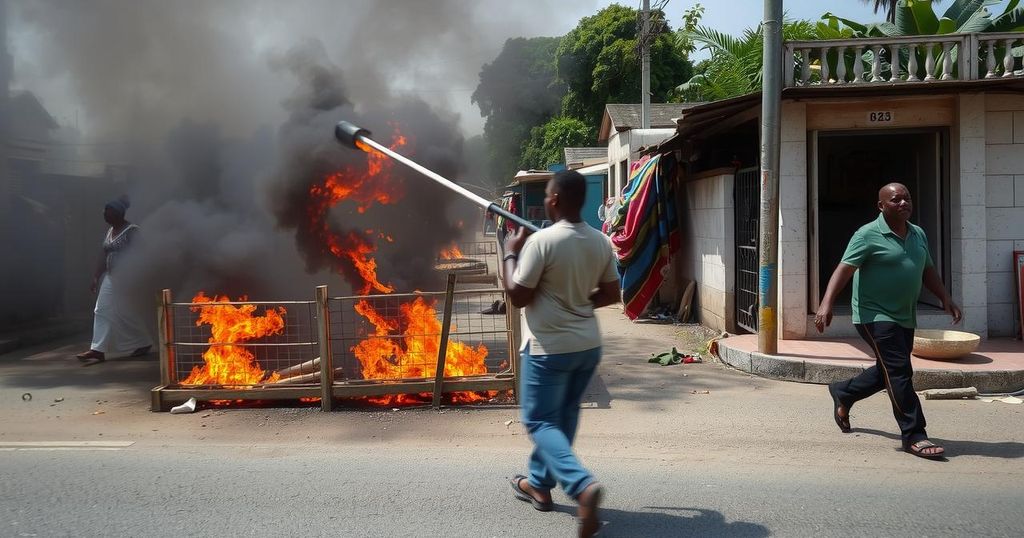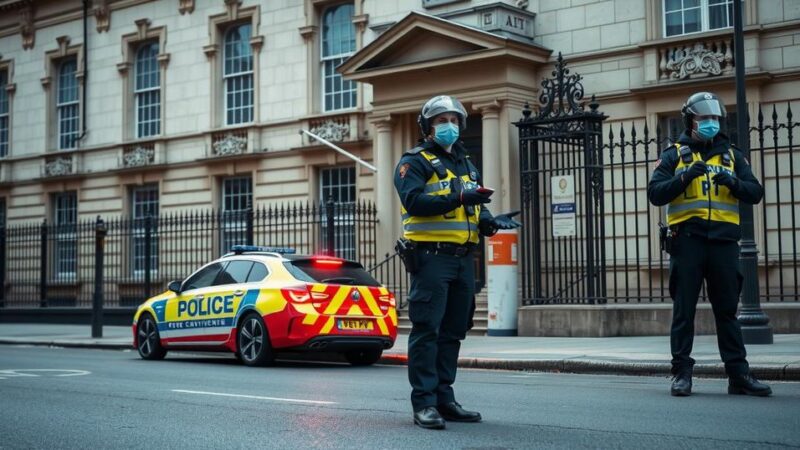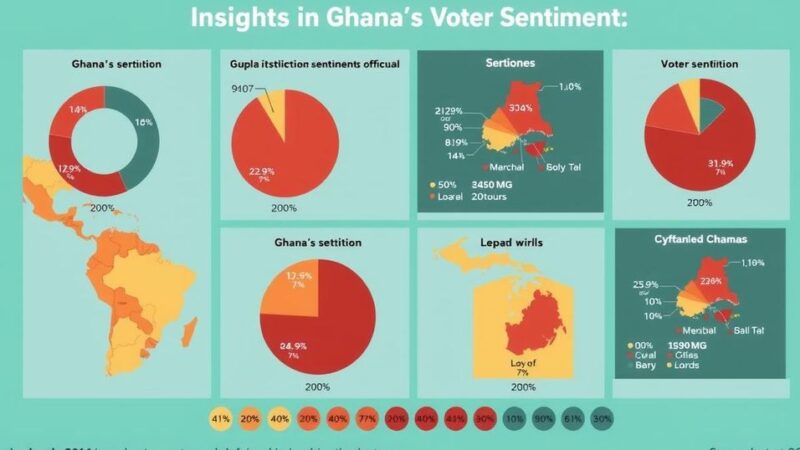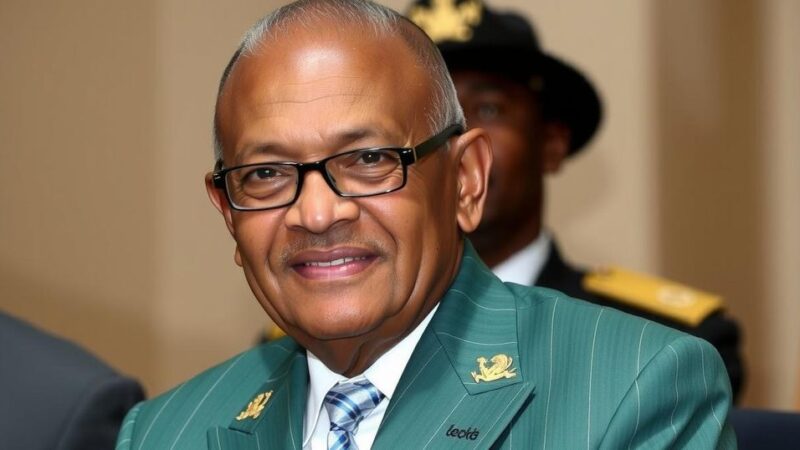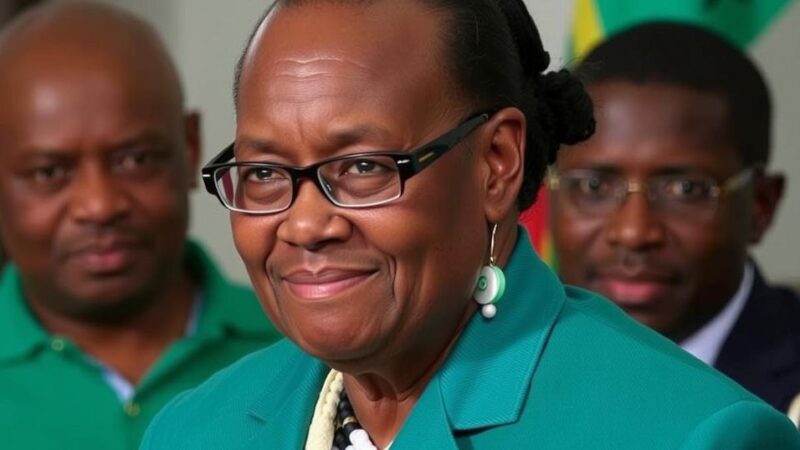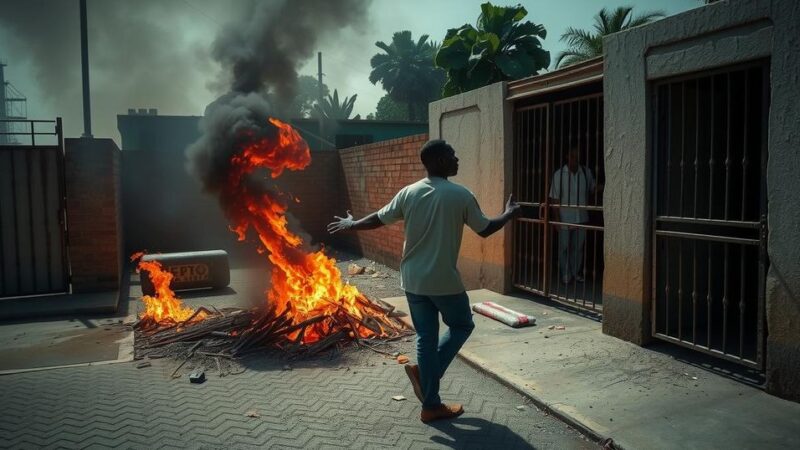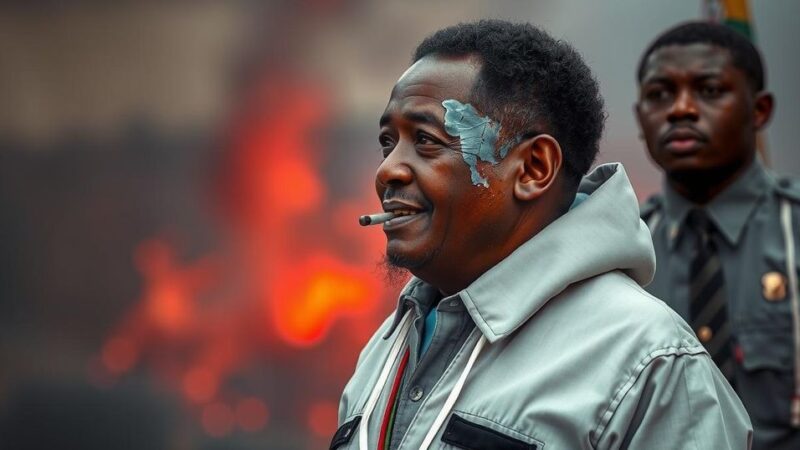Mozambique has witnessed significant post-election violence since the ruling party’s candidate, Daniel Chapo, was declared the victor of the disputed presidential elections on October 9. The death toll has risen to 151, with ongoing protests led by supporters of the exiled opposition leader, Venancio Mondlane. The constitutional court recently upheld Chapo’s victory, though it adjusted his winning margin from 71% to 65%.
Following Mozambique’s contentious presidential elections, the confirmed death toll from violence has now reached 151, with at least 21 fatalities reported since the Constitutional Court affirmed the ruling party Frelimo’s candidate, Daniel Chapo, as the winner. The unrest erupted on October 21 after the electoral body announced Chapo’s victory, leading to widespread protests by supporters of exiled opposition leader, Venancio Mondlane. Protesters have been accused of vandalizing public properties, amidst a climate of fear as additional protests are anticipated in the wake of the court’s ruling that reduced Chapo’s winning margin from 71% to 65%.
The violence that has erupted in Mozambique has deep roots in a disputed election process that has incited public discontent, particularly among the supporters of the opposition. Following the announcement of Daniel Chapo as the victor of the October 9 election, the country has grappled with protests and unrest, prompting calls for justice and accountability. The situation has escalated with Mondlane, who remains in self-imposed exile, forewarning the populace of “difficult days ahead,” signaling the rising tensions within the nation.
Mozambique has recently underwent a tumultuous electoral period marked by allegations of unfair processes and violence. The electoral outcome, which saw Frelimo’s candidate Daniel Chapo declared the winner amidst significant dissent, has reignited unrest across the capital, Maputo. The tragic emergence of violence leading to a rising death toll reveals deep societal fractures and highlights the ongoing struggle between the ruling party and the opposition. The backdrop of this crisis involves a complex political landscape where issues of governance, electoral integrity, and civil rights are deeply intertwined, shaping the trajectory of the nation’s future.
In conclusion, the post-electoral violence in Mozambique demonstrates the acute tensions resulting from a disputed electoral process, culminating in serious casualties among the population. The affirmation of Daniel Chapo’s victory by the Constitutional Court, amid public outcry, exacerbates societal rifts and raises concerns about stability in the nation. As protesters continue to express their dissent, the need for peaceful resolution and dialogue becomes increasingly urgent to prevent further loss of life and promote democratic processes.
Original Source: news.az

